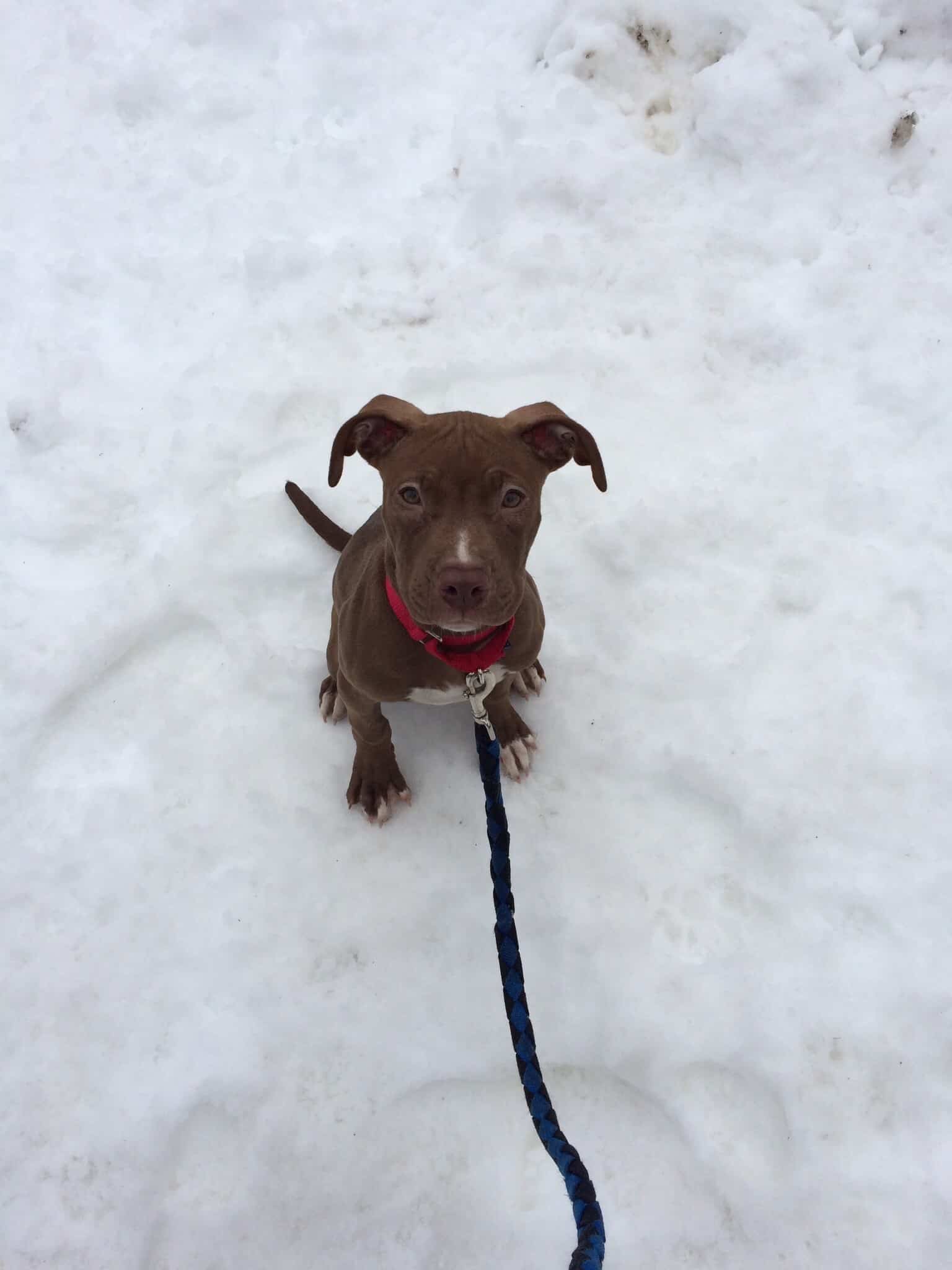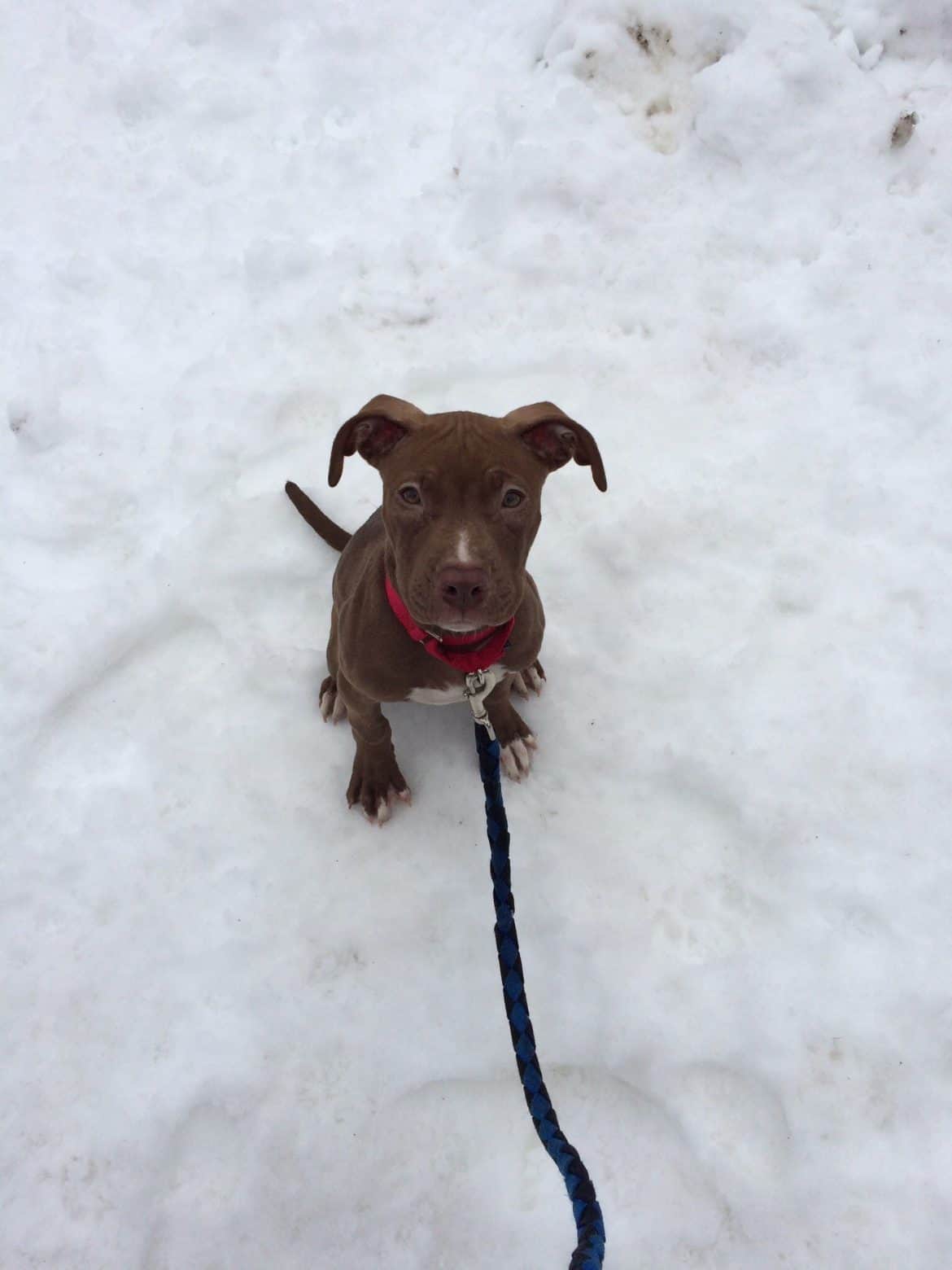Tips on How to Address Dry Skin Problems in Pit bulls
Winter is here and your pit bull’s coat is suddenly looking dull and dry. What could be the cause of this?

As it turns out, cold weather, among other things, is a major cause of your dog’s coat going dry. A lot of pet parents spend money and time at vet clinics trying to score the right drug to treat dry skin in their furry friends. But you do not have to spend a fortune treating dry skin in your puppy pit bull
Fortunately, we are going to show you inexpensive ways of keeping your dog’s coat thick and lush this winter. Also, you can use these tips in the subsequent seasons if you never want to worry about a dull coat in your pup.
Before we get to that, we need to know how dogs get dry skin problems in the first place.
What causes dry skin in pit bulls?
In nutshell, dry skin problems in Pit bulls is caused by;
- Cold weather
- Digestive problems
- Skin conditions
- Poor diet
Cold weather
Cold weather and low humidity in winter can cause dry skin problems in pit bulls. Pit bulls fall in the category of dogs with short hair coats. This makes them more vulnerable to dry and flaky skin. As the skin loses its natural oils, it becomes harder for the dog to thermoregulate their bodies. This makes winter unbearable, especially for a puppy pit bull.
Digestive problems
Dry skin on dogs is also caused by digestive problems. Poor gut health inhibits a dog’s ability to absorb nutrients from food. This creates a deficiency in the vital nutrients that promote a healthy coat and skin. Constant vomiting and diarrhea in dogs cause dehydration which results in a dry flaky coat.
Skin conditions
Skin diseases like atopic dermatitis can cause serious skin allergies in dogs. Also, a puppy pit bull can develop skin conditions from environmental allergens like mold, grass, or pollen. Parasites such as fleas and ticks also cause atopic dermatitis in dogs.
Poor diet
A pit bull terrier that is not feeding too well is likely to develop skin and coat problems. Lack of enough nutrients in its food hinders the dog’s well-being and growth. Besides a dull and rough coat, the dog may also have poor muscle and brain development.
Signs of dry skin problems in pit bulls
Common signs of dry skin problems in dogs include;
- An itchy coat
- Scaling of skin
- Hotspots due to inflammation
- A bad odor
- Flaking skin
- Dandruff
- Hair Loss
If you notice all these issues in your dog, it is time to do something about it.
How can you treat dry skin problems in pit bulls?
Take your bully for a routine checkup to find out why their coat is losing its shine. Once you identify the root course, you can use these methods to address the dryness and flakiness in your puppy pit bull coat.
Essential fatty acids for treating dry skin problems in pit bulls
Dogs need two kinds of essential fatty acids for a healthy coat and skin. These are
- Omega 3 fatty acids
- Omega 6 fatty acids
Omega 3 for pit bull terrier dogs
Omega 3 are unsaturated fatty acids that have several health benefits in your puppy pit bull;
- It rejuvenates the skin and coat of your dog
- It promotes healthy function of the skin
- It aids in the formation and function of the cell membrane
- It lines up the gut which aids in digestion
- It improves cardiovascular function
Omega 6, on the other hand, has the following benefits’
- It alleviates joint inflammation
- It promotes a healthy function of the kidneys and heart
- It improves the shine on your dog’s skin and coat
- It improves cognitive abilities which makes your dog more trainable
- It improves the moods of your puppy pit bull
- It helps fight infections
Your pit bull terrier needs these two healthy fats to keep their coat shiny. The best sources of omega 3 and 6 fatty acids are from cold-water fish such as;
- Mackerel
- Salmon
- Anchovies
- Trout
- Arctic char
- Sardines
You can also get these essential fatty acids from plants like;
- Walnuts
- Flax seeds
- Soybeans
Plant oils such as canola and flax seeds also contain traces of Omega 3 and 6 fatty acids. But the greatest source of these essential fats comes from fish. If you are feeding your pit bull terrier a raw food diet, ensure you add lots of mackerel and salmon in there.
Healthy supplements for dogs
You must boost your pit bull diet with healthy supplements this winter. Supplements like Bullyade contain nutrients such as Vitamin E which promotes healthy skin and coat in your dog.
Other important nutrients in pet supplements include B vitamins, Vitamin C, D, and A. Your dog also benefits from minerals such as copper, iodine, magnesium, and iron. All these nutrients when combined improve your dog’s overall health including skin and coat.
Coconut oil for treating dry skin problems in pit bulls
Coconut oil is handy in addressing various skin conditions. Coconut oil for dogs has the following health benefits;
- Alleviates and improves skin and coat issues
- Helps improve symptoms of diabetes
- Excellent in relieving digestive issues such as irritable bowel syndrome
- Promotes a healthy brain and improves cognitive function
- Ideal for dogs with joint and paw injuries
- Kills bacteria on pit bull puppy skin and coat
- A proven mood booster
Your puppy pit bull only needs a teaspoon of coconut oil to maintain a healthy coat. Another good thing about coconut oil is that it is purely organic and unscented. Do not give too much coconut oil to a dog as it can cause them to vomit and diarrhea.
Conclusion
It is possible for your pit bull to have a shiny healthy coat this cold season. Boost his diet, increase his essential fats intake, and use coconut oil on his coat. Do this every season and you never have to worry about dry flaky skin on your pit bull.

